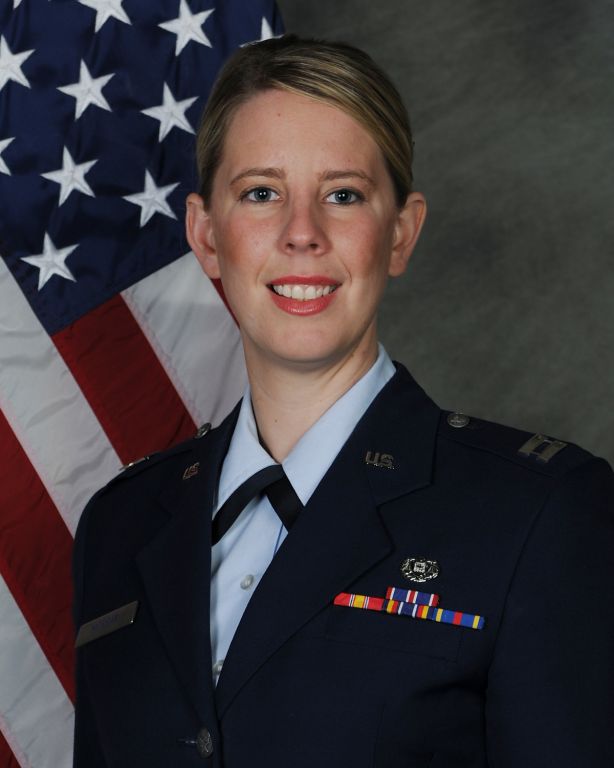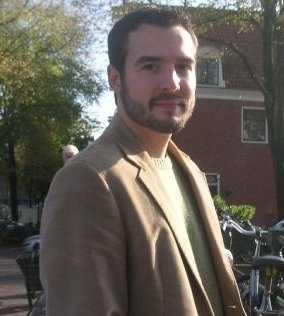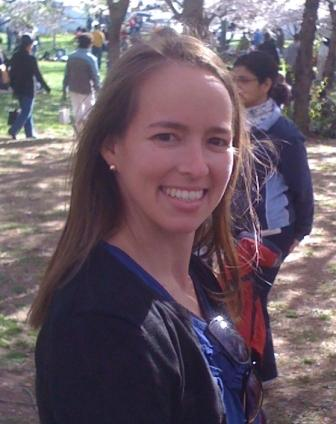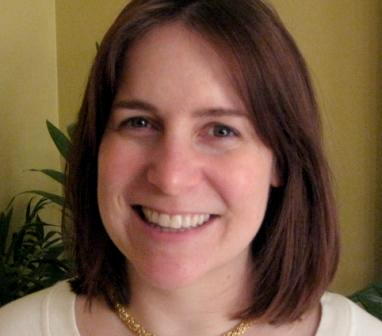Careers for Philosophy Majors
Studying philosophy develops habits of mind and skills that are transferable to virtually any career-critical thinking and creative problem solving, the ability to express one's point of view and present arguments concisely, and the ability to conduct research and compile and evaluate information.
Some philosophy majors earn advanced degrees and teach at the college level, but most seek non-academic careers in which their major is considered a valuable asset, such as law, medicine, public service, and business.
The following profiles of recent Gettysburg philosophy alumni illustrate the variety of post-graduation pursuits.
Captain in the United States Air Force JAGS Corps
 Annie Morgan ’06 is a Captain in the United States Air Force Judge Advocate General (JAGS) Corps. She recently finished a tour as a defense counsel where she was responsible for representing nearly 13,000 Airmen stationed in Europe and the Middle East. She is currently assigned as an Appellate Defense Counsel at Joint Base Andrews, Maryland. In that role, she represents Air Force appellants before the Air Force Court of Criminal Appeals, the U.S. Court of Appeals for the Armed Forces, and the U.S. Supreme Court.
Annie Morgan ’06 is a Captain in the United States Air Force Judge Advocate General (JAGS) Corps. She recently finished a tour as a defense counsel where she was responsible for representing nearly 13,000 Airmen stationed in Europe and the Middle East. She is currently assigned as an Appellate Defense Counsel at Joint Base Andrews, Maryland. In that role, she represents Air Force appellants before the Air Force Court of Criminal Appeals, the U.S. Court of Appeals for the Armed Forces, and the U.S. Supreme Court.
“I frequently find myself returning to my background in philosophy in my professional endeavors. I am proud to serve in the Air Force during – arguably – the most dynamic time for women that our military has ever known and find myself harkening back to my coursework in feminist philosophy. Most subtly, as a defense counsel, I draw strength from the stoics, laughter from the absurdists, and wisdom from all, all in an attempt to overcome what often feels like a Sisyphean task. Even more important, in life, I feel that a background in philosophy makes you more fun at cocktail parties.”
Research Associate at Cornell University
 Will Searle ’04 is a research associate in the Office of Institutional Research and Planning at Cornell University. He designs surveys, analyzes data, and prepares reports for decision makers at the university. “Although my graduate study at Harvard provided me with the background in statistics necessary for my work, I nevertheless rely on my background in philosophy every day. You see, crunching the numbers is only part of my job, but even that demands the critical thinking skills necessary to determine the appropriate way in which to assemble a statistical model. The other, perhaps more important part, is determining what the numbers do and do not say, understanding the relationships of various pieces of information to one another, and then stitching together a narrative. And that's what philosophy taught me to do-to analyze each piece of available information, to recognize the way in which one piece of information is connected to another, and then to integrate each piece into a coherent whole.”
Will Searle ’04 is a research associate in the Office of Institutional Research and Planning at Cornell University. He designs surveys, analyzes data, and prepares reports for decision makers at the university. “Although my graduate study at Harvard provided me with the background in statistics necessary for my work, I nevertheless rely on my background in philosophy every day. You see, crunching the numbers is only part of my job, but even that demands the critical thinking skills necessary to determine the appropriate way in which to assemble a statistical model. The other, perhaps more important part, is determining what the numbers do and do not say, understanding the relationships of various pieces of information to one another, and then stitching together a narrative. And that's what philosophy taught me to do-to analyze each piece of available information, to recognize the way in which one piece of information is connected to another, and then to integrate each piece into a coherent whole.”
Public Defender in Bucks County, PA

Conservationist at the U.S. Park Service
 George Newman ’97 was inspired to do conservation work by his course in environmental ethics. Finding an internship with Chesapeake Wildlife Heritage, he worked to restore habitat along the Chesapeake Bay and its tributaries to benefit wildlife and improve water quality while also teaching environmental science at the Saint James School. He has recently taken a new position with the U.S. Park Service where he will lead volunteer natural resource projects along 184.5-mile waterway.
George Newman ’97 was inspired to do conservation work by his course in environmental ethics. Finding an internship with Chesapeake Wildlife Heritage, he worked to restore habitat along the Chesapeake Bay and its tributaries to benefit wildlife and improve water quality while also teaching environmental science at the Saint James School. He has recently taken a new position with the U.S. Park Service where he will lead volunteer natural resource projects along 184.5-mile waterway.
Project Manager at the Broad Institute
